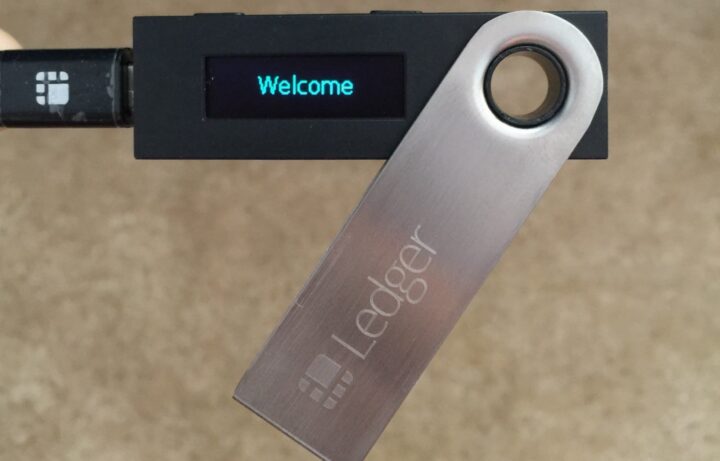Security Guide: How to Invest in Cryptocurrency without Fear?

With more and more people choosing to buy Bitcoin, security becomes an important issue. After all, the self custody protocols promoted by the crypto community are unlike any other storage of safe-haven assets that we have ever seen before.
This became even more evident when hardware wallet giant Ledger fell victim to a database hack. Millions of personal information of their users were revealed to the public, and most are now afraid that their coins are in grave danger. The company can not do anything about it at this point and points out to users that knowing how to protect your cryptocurrency is an individual responsibility.

For this reason, we chose to write this guide. Within the contents of this article, you will find all the important information you need to keep in mind (and apply), in order to ensure that your funds are safe from prying eyes. Let’s delve in.
Tip 1 – Use multiple wallets
Placing all your coins (of a certain cryptocurrency) into a single wallet address creates a single point of failure. It also makes you a target if the amounts are too high. Ideally, you want to spread your funds over many different addresses, keeping a small amount in each one of them. This is done automatically when using hardware wallets like Trezon One or Ledger Nano S. Each time you wish to receive a new payment, a new address can be generated to accommodate it.
Tip 2 – Enable 2FA
A 2 Factor Authenticator is a 6-digit code created each minute, to ensure the security of your online accounts. This is extremely important for all your online and mobile cryptocurrency wallets, whether they are self-custodial or not. By adding more layers of security you ensure that no one can access your wallet without your permission.
Note: It is best to enable your 2FA onto a second phone that you will always leave safely stored at home, especially when using a mobile wallet on your main device. Make sure there is no sim card in this secondary phone to avoid any potential SIM swapping practices.
Tip 3 – Use a Hardware Wallet

Hardware wallets are the best option you have in terms of safety when storing cryptocurrencies. These small USB-like devices can store up to 2000 cryptocurrencies, allowing you to track their performance at all times. It’s simple – you can just log into your wallet, check the current Litecoin price, Ethereum price, or any other price of coins with Paybis., and then perform the transaction you wish to make.
What is most interesting with hardware wallets is their ability to confirm transactions through manual authorization, a practice that completely eliminates the chances of hacking your account.
Tip 4 – Write your backup phrase on paper
As soon as you set up your cryptocurrency wallet, any type of wallet, you will be first presented with a set of 12-24 words. These words will enable you to unlock your access point to the blockchain in case your wallet gets stolen or lost. These words are probably the most valuable part of your wallet, and should always remain away from prying eyes.
As soon as you see these words popping up on your screen, make sure you write them down on a piece of paper (not on your computer!) and store them in a safe place. You don’t want anyone accessing them at any point in time unless it is absolutely necessary.
Tip #5 – Keep things to yourself
Bitcoin and cryptocurrencies have a realistic potential to make you rich if you manage to hold onto your coins and remove any emotional reactions from the process. However, as this starts to happen (especially if you are newly-rich), you will feel the need to show off to your peers. You may want to purchase expensive items and completely change your lifestyle – think about how your life would look different if you would 20x all your money – in order to accommodate this change.
It is important that you keep a level-headed attitude towards your investment and avoid becoming a target. Do not talk about Bitcoin a lot unless it is about educating your peers about its potential. Do not flash off your profits and claim they come from Bitcoin investments. All this makes you a target and you don’t want to become subject to this kind of life. Investing is very important today, so if you prefer gold investments, you can do that through online transactions from bullionboxsubscriptions.c
Tip #6 – Do not trust flashy trends

As the industry evolves and centralized institutions acquire Bitcoin on their balance sheet, there is an increased tendency towards whitelisted addresses and centralized custodial services for your crypto.
Both trends offer benefits to crypto users. Whitelisted wallets make it easier to trade crypto within the wallet app, without having to visit third-party exchanges. In some cases, they may even airdrop some free crypto to make the offer more lucrative. Custodial services like BlockFi, Celsius Network, or even those created by traditional financial institutions offer high amounts of interest. In some cases, interest on Bitcoin can exceed 8% annually, which is quite large when comparing it to negative interest rates that banks offer to FIAT deposits.
Both cases, however, hide dangers. Whenever you choose to store your coins with a third party, you will once again need to “trust” them, an element which Satoshi Nakamoto aimed to eliminate with the creation of Bitcoin. Whitelisted addresses can further expose your personal information removing the pseudo-anonymity that crypto offers. So, while you may get more efficient trading options or even high interest on your coins, it may not be the best idea if you want to sleep soundly at night, knowing that you are the only person in control of your funds.
Wrapping up
You should now have a better idea of the things you can do to secure your investment and its long-term potential. After reading this post, you can instantly start applying the tips discussed above. Most importantly, however, make sure you educate yourself on the long-term potential of Bitcoin and make sure you invest responsibly. Keep in mind that the contents of this post do not constitute financial advice.
